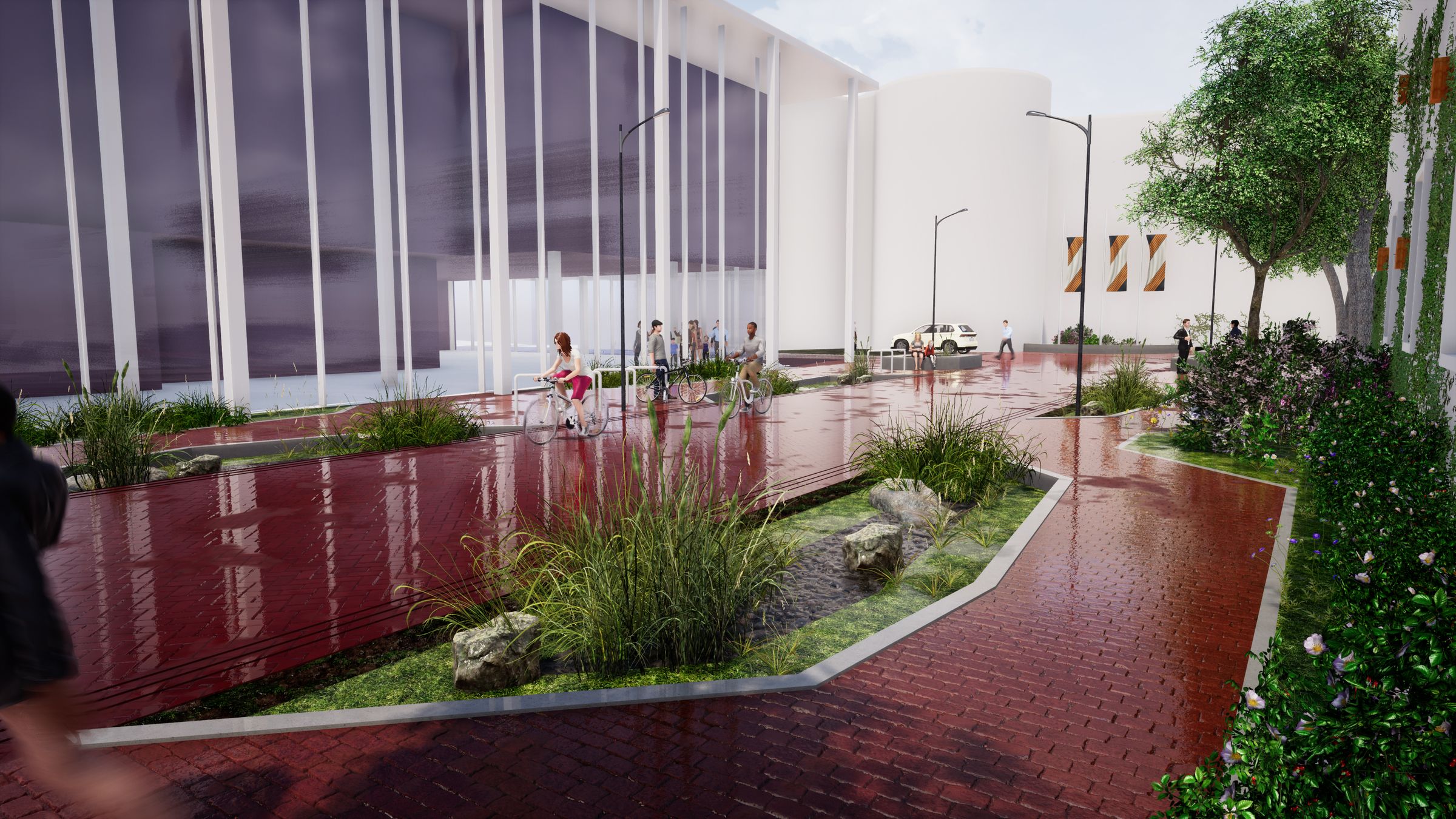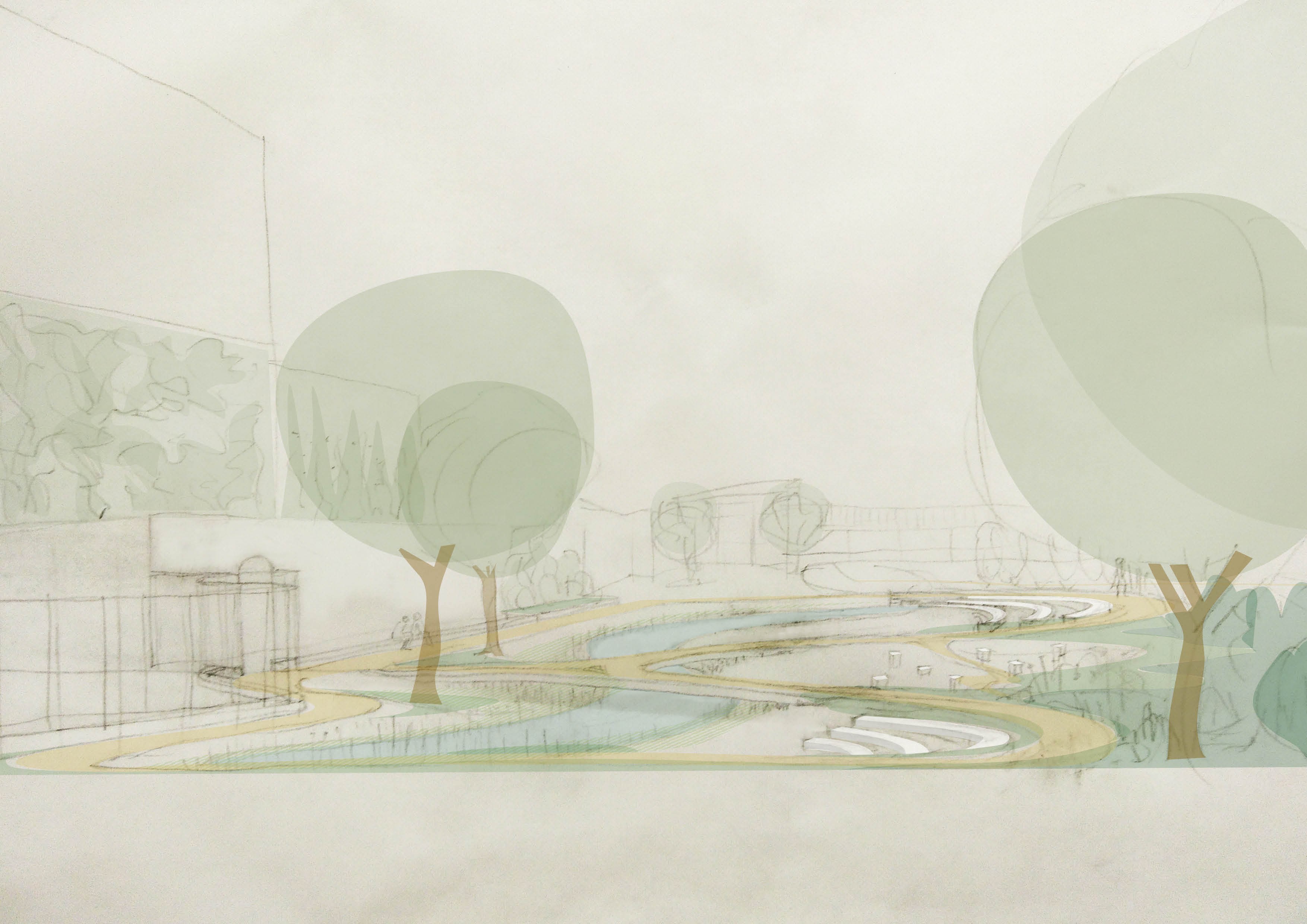

Action plan for a future-proof Roosendaal
A transformation to a climate adaptive and vibrant city center
Sep 24, 2020

During the spring of 2019, the municipality of Roosendaal in the Netherlands took the initiative to develop an "Action Plan to Future-proof City Center of Roosendaal." Except Integrated Sustainability, along with the local citizenry, conceptualized holistic designs that contribute to building a more resilient and future-focused city.

The action plan produced addresses several different trajectories regarding public space redevelopment. It aims to reimagine public spaces and improve climate adaptivity, accessibility, cultural development, and social cohesion. As such, it contributes to enhancing Roosendaal's current reputation as a pleasant, lively, and green sustainable city. Some of the more significant concepts include:
The streetscape of Nieuwstraat plays a vital role in the public accessibility to the city’s cultural heart - the 'Tongerloplein.' With the introduction of a new cinema and the restoration of a connected public garden (Stadstuin van Hasselt), the street gains new functionality. To achieve this, the street needs to be redeveloped to accommodate the demand for these new functions in conjunction with its upgraded status as an entryway to the city.
Together with locals, we decided to transform parking spaces to wadis - small streams filled with pebble and sand that retain water and allow it to infiltrate subsoils. These wadis intertwine with surrounding green spaces in a bid to enhance biodiversity.
The climate-adaptive urban garden 'Stadstuin van Hasselt' is created by reimagining a parking lot built over the historic 'Tuin van Van Hasselt' gardens. Bringing greenery and ecosystems back will return it to a significant local space and reconnect several popular spaces, including 'Nieuwstraat,' 'Tongerloplein,' and 'Koetshuis.')
The historical moat surrounding 'Tongerlohuys' is a local landmark and borders the new park, connecting it to a historical waterway, 'het Beekdal,' and forming a central spine to the park. This waterway is the lowest point in the neighborhood and will serve as a stormwater reservoir during heavy rainfall.
The garden's overall design promotes cultural and educational development, increases biodiversity, enhances resilience, and reduces pressure on adjacent sewer systems. It helps advance Roosendaal's overarching goal of creating a future-proof city center.
Contact us to inquire about climate proofing cities or our services.
Sept. 24, 2020
Architect and Project Manager
Director
Landscape Architect
Paul de Graaf Ontwerp & Onderzoek